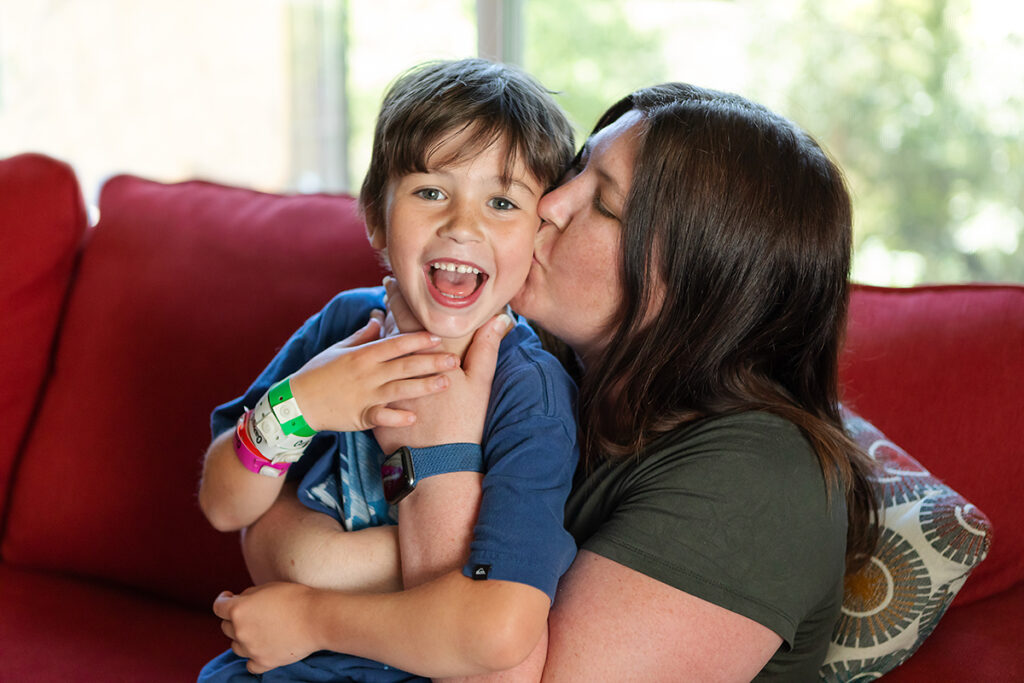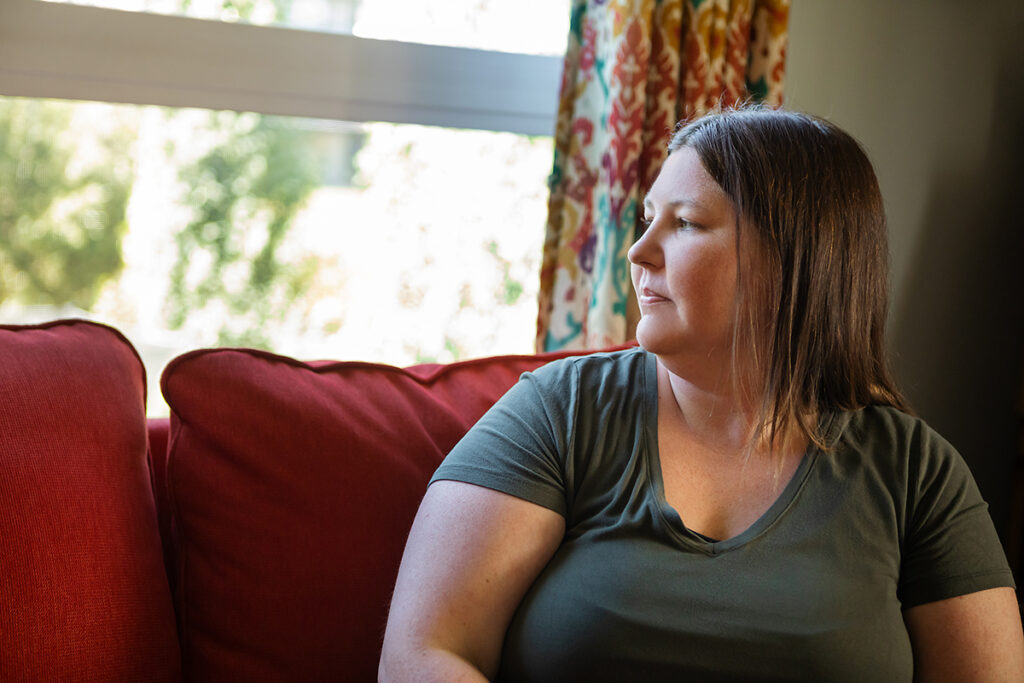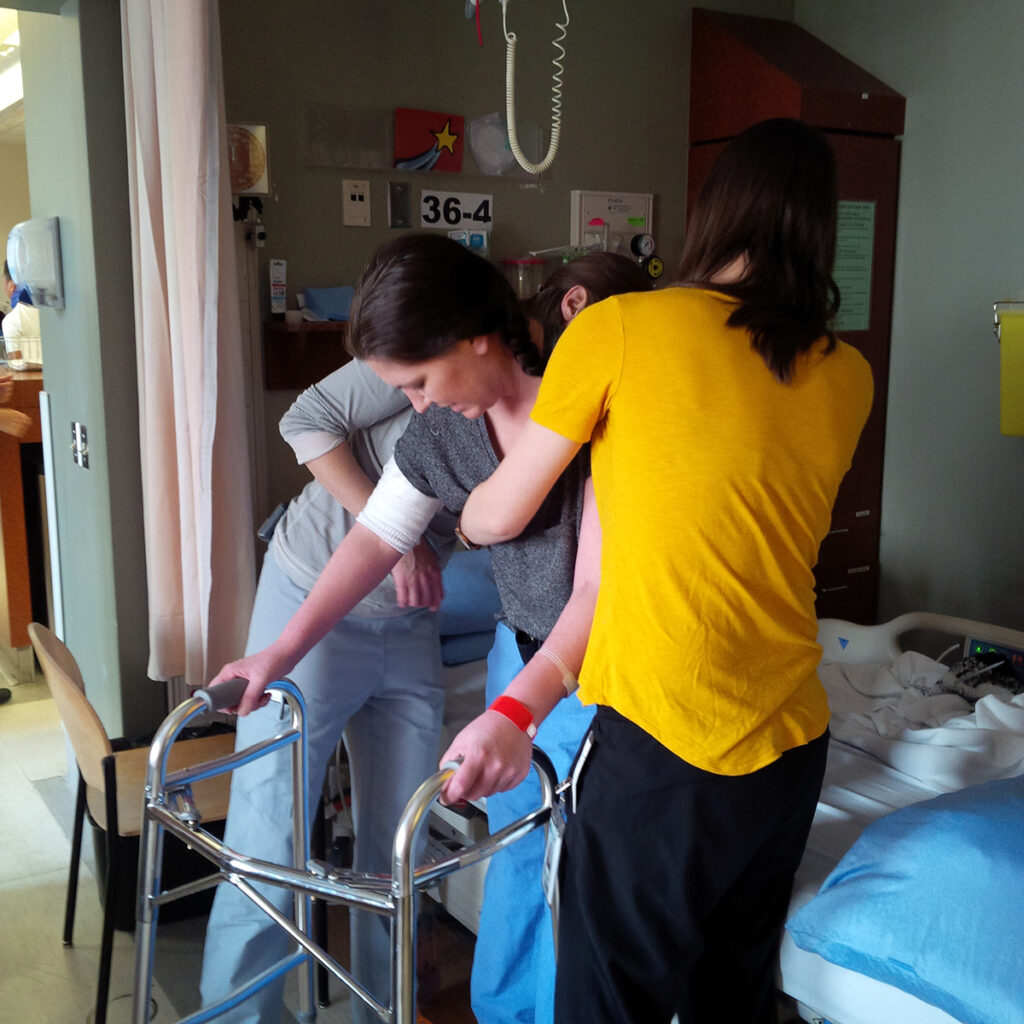At just 35, Sarah Reid suffered a stroke that left her unconscious at home with her four year old son, Kolten, helplessly at her side. When Kolten was two, his father suffered a catastrophic brain injury and within two short years passed away. Then, only months later, Kolten nearly lost his mother to a serious and critical brain emergency.

Sarah, a loving and devoted mother, was still grieving the loss of her husband and raising their son, Kolten, on her own. She developed a severe sinus infection, but as many busy mothers often do, her focus was solely on Kolten and his needs, leaving her illness untreated. Sarah was a teacher who was active, loved to play hockey and, most importantly, adored spending time with her young son.
Then, Sarah began experiencing multiple strokes and extreme brain swelling and her simple sinus infection turned into a critical emergency. When the unthinkable happened, Sarah and her son were home – alone. After missing work, her employer called the RCMP in her community to conduct a wellness check on her and Kolten. Sarah was suffering a life-threatening brain infection.
Every minute that went by without help, Sarah’s brain infection worsened, eventually putting her in a comatose state and unable to seek help. Kolten was alone in the house with his gravely ill mother, not knowing what to do or where to go. A terrifying ordeal for any child, but especially distressing for Kolten after experiencing the recent loss of his father. When the police officers arrived at their house, they had to break down the door to get in. Kolten was sitting on the bottom step of the stairs at the front door and promptly told the officers that his mom was very sick.

Sarah was urgently admitted to the Foothills Medical Centre Intensive Care Unit (ICU), where she was quickly seen by a specialized neuro team who were able to assess and stabilize her. Sarah’s condition was quickly deteriorating, and she was immediately put on life support for several weeks while receiving treatment.
Sarah’s care team applied specialized multimodal neuromonitoring techniques to navigate the delicate elements of Sarah’s care. This type of innovation enables the ICU team to detect worrisome findings in real-time in order to implement crucial interventions in a timely manner that ultimately improves patient outcomes.
Sarah was in a coma for three weeks. She spent over one month in the critical care of the ICU team. She had a long road ahead of her with Dr. Julie Kromm, a neurocritical care specialist, at her side, cheering her on. Her mother, Lynn, was with Sarah every step of the way, visiting her daily and holding her hand when it wasn’t certain if Sarah was going to make it. It was clear that Sarah had a very long road ahead of her.
Once Sarah was stabilized and able to start her journey of recovery, her goal was always to get home to her son. The neurocritical care team ensured Kolten was part of this journey, was able to visit his mom regularly and even participate in her rehabilitation program. Every small improvement was celebrated as Sarah had to relearn how to do the simplest tasks that we all take for granted. The rehab team went above and beyond in their care of Sarah, even getting her out on skates with a stick at Olympic Plaza to get her back to her number one sport – hockey.
Six months after being admitted in critical condition, Sarah felt the sun on her face and listened to the chatter of her son all the way home from the hospital.

“We cannot say enough positive things about the care that Sarah received while at Foothills Medical Centre. There was not a stone left unturned in her care.” Lynn, Sarah’s mom.
Sarah and Kolten’s story could have had a very different ending – a devastating one. But thanks to the RCMP, the skilled medical staff and critical rapid diagnosis and treatment of Dr. Kromm and the neurocritical care team, their story has a happy ending.
Calgary Health Foundation is committed to supporting world-class leadership in neurocritical care in Southern Alberta. To do so, Calgary Health Foundation will support the expansion of programs by investing in resources and advancing technology, while furthering ground-breaking research through collaboration with other world-class facilities. Ultimately, this will result in a 10%-15% increase in the odds of survival among patients and a 15%-20% increase in the chance of patients returning home with minimal disability over the next five years.
“If it were not for the critical care that I received, I would not be here for my son today. He still has his Mom thanks to their knowledge and expertise.” Sarah Reid.
Today, Sarah is able to cheer on Kolten at his hockey games and continues to make progress in her recovery. Her message is one of hope, strength, perseverance and immense gratitude for the care she received while at Foothills Medical Centre.
Recovery from critical brain disorders is possible. Research in the brain’s neuroplasticity is ever evolving.


